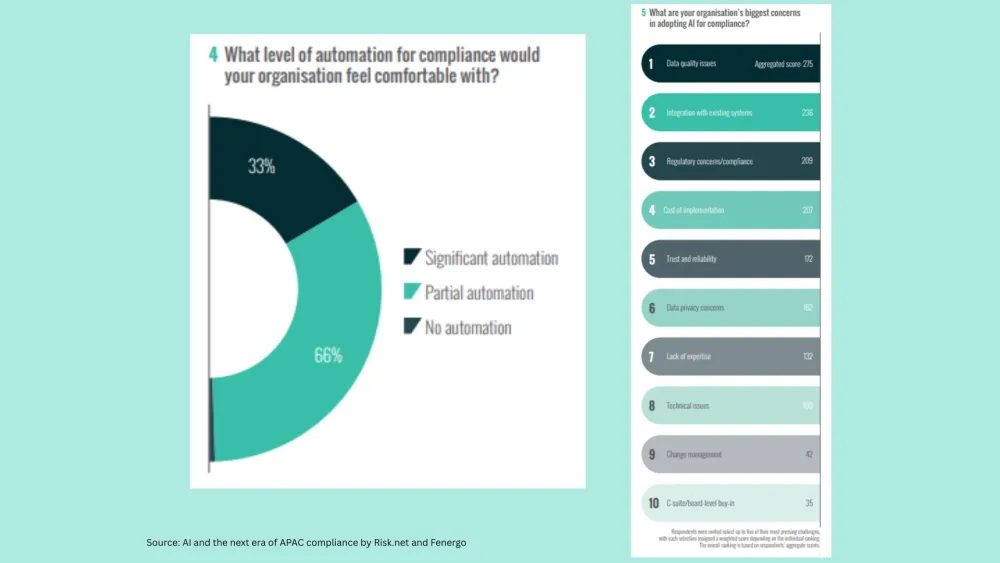
Empathy deficit erodes customers’ trust in banks
Customers who feel valued are willing to spend more for banking products.
Banks in Asia’s financial centres are facing a trust issue. Less than 3 in 10 banking customers in Hong Kong and Singapore indicated that they hold “high trust” in their banks, according to a study by Forrester Research. In Hong Kong, of the 988 respondents surveyed, only 16% indicated that they have high trust in banks — the lowest in the region — whilst 71% of customers surveyed indicated that they have weak (22%) or very weak trust (49%) in their banks.
One of the biggest reasons is the perception that banks lack empathy. Customers do not think that banks are putting enough effort to understand their needs and act in their best interests, said Tom Mouhsian, principal analyst for Asia-Pacific at Forrester, and one of the authors of the APAC Financial Services Customer Trust Index.
“Empathy is a combination of three things. Number one, you need to understand a customer’s needs. Number two, you need to care really, genuinely care about those needs. And number three, you need to act, you need to do something to help [the customer] with those needs,” Mouhsian explained to Asian Banking & Finance.
As an example, Mouhsian noted a scenario in which a customer lost a job and asked the bank for options to help refinance their debt. Unfortunately, the bank’s representative that they talked to, whilst expressing sympathy over the customer’s bad luck, refused to help them refinance or was unable to do anything about their request.
“So you'll walk away with the feeling like they didn't really give empathy, because they just said, “oh, we feel we feel your pain” but they didn't do anything,” Mouhsian explained.
“Real empathy needs [the bank] to understand, care and act, because the number one most important driver of interest is this perception that my bank or my insurance company is acting in my best interest. When somebody is acting in your best interest at heart, genuinely, you tend to trust these people,” he added.
Mouhsian and Forrester’s study posits that trust is measurable, with empathy as just one of the factors that Forrester measured in determining customers’ trust levels in their banks. They broke trust down into seven categories: accountability, competence, consistency, dependability, integrity, transparency, and empathy.
ALSO READ: How have banks’ wealth management pivots played out?
Singaporeans are ‘hard to please’
Singapore banks fared better in that 30% of the 1,010 customers surveyed indicated a high level of trust in banks. But more than double of respondents (69%) said that they only have moderate trust in their bank.
This is on par to how Singaporean banks have always fared in terms of trust, noted Mouhsian. “In the history of our CX index in Singapore, the industry as a whole has never been good or excellent. It's always been historically, either poor or sort of in the middle,” he said.
Since 2018, the average trust score ranged between 59.9 to 62 for the six banks that Forrester studied: DBS, Citi, HSBC, Standard Chartered, OCBC, and UOB. The latest Forrester study notes Citi as the city’s most trusted bank.
“You see that the banks are struggling to get the majority of their customers to rate their experiences as good,” Mouhsian said.
Why is that? “It's a tough market,” Mouhsian admits. “It’s difficult to impress customers with excellent experience all the time.”
As a result, Singapore is standing at a stalemate: without any single bank standing out in terms of customer experience.
So how can Singaporean banks impress their customers? To start, they must leave an emotionally positive customer experience.
Forrester’s study found that the two top-ranked brands in this year’s CX Index–Citibank and DBS, had average emotion ratios (the number of positive interactions for each negative one) of 7 and 9, respectively. For the last two brands, OCBC and UOB, this ratio was 5 and 4.
Walking away happy
It all comes down to this: the customer must walk away happy from the interaction they got, or at least walk away without feeling frustrated.
“For example, you could be very effective in your website, and the mobile app could be very effective in making one transaction, or transfering money. But it's emotionally neutral. You don't feel any great or unhappy, it’s just… neutral,” he said.
In contrast, in instances when the customer has to contact the customer service, and the interaction happens to be long, complicated, or involving many steps, the negative experience lingers.
“You actually prioritise that emotion over all of the things that you did before that are easy and simple and standard. What you really remember are those emotions,” Mouhsian pointed out.
ALSO READ: Why Singaporeans are okay with locking away over $4b of their money
Keeping them happy is a must not just for trust, but especially for loyalty. Forrester’s found that amongst Singaporean banking customers’ who felt happy and valued, over 7 in 10 are willing to pay more for banking products, and stay with their bank.
For banks to better resonate with customers, respondents from across APAC — including 988 in Hong Kong, 1,010 in Singapore, and 6,966 across five other markets — cited three drivers: the belief that banks understand their financial needs; the belief that the company cares about their financial well-being; and the belief that the bank does what’s best for the customer.
More trust = more revenue
Customers with strong trust in banks overwhelmingly indicated a greater likelihood to recommend their primary bank to friends and family, prefer the bank over its competitors, open another account, and use additional products or services from the bank, the study found.
This, in turn, will result in higher revenue. The revenue-related outcome gap– defined as the difference in the probability of positive outcomes between customers with high trust and low trust — ranges from 40 to 63 percentage points for these four outcomes across APAC banks.
In Malaysia, for example, 91% of customers with high trust will prefer the bank over competitors compared with 29% of customers with low trust — a gap of 62 percentage points.
ALSO READ: What Makes BNI's API Service Stand Out in the Open Banking Era?
In Singapore, the trend is quite different: despite being arguably “unimpressed” in their banks, they’re still more likely to trust legacy banks over startups.
“Because startups don’t have a history. They don’t have a long reputation. When it comes to banking, Singaporean customers trust the main banks that have been here for 50 or 100 years, and also the ones that have a physical presence,” Mouhsian said.
The amount of trust bank brand commands also determines how quickly it can pivot and expand into new or adjacent markets and customer segments, introduce new solutions or experiences, and innovate with bold new ideas.
“Our data shows that customers with high trust in a specific brand are more likely to trust companies affiliated with it and try a new product or a service from the brand, even if it’s unrelated to what they currently use from it,” the study found.
In Singapore, banking customers with high trust are 56 percentage points more likely to trust companies affiliated with their primary bank than those with low trust.



















 Advertise
Advertise













